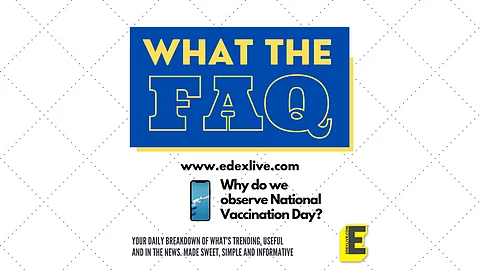

Today, that is, March 16 is observed as National Vaccination Day every year to spread awareness about vaccination in the country. It was on this day, back in 1995, that the first dose of oral polio vaccine was given in India. The initiative to eradicate polio from the country came in the form of the Pulse Polio campaign launched by the government. As part of this, two drops of oral polio vaccine were given to all children less than five years old. By 2014, India was declared polio-free.
Now that you know how it all began and why we observe the day, in this edition of What The FAQ, we explore the significance and history of various vaccination programmes in India.
How is National Vaccination Day being observed this year?
To mark the National Immunisation Day, the Ministry of Health and Family Welfare has announced the commencement of free-of-cost COVID-19 vaccination for all beneficiaries from the 12-14 age group beginning today at all government COVID vaccination centres.
What is the theme of this year's National Vaccination Day?
The theme for this year's National Immunisation Day is, 'Vaccines work for all.' The theme highlights how vaccines work for all and save lives all around the world, especially in light of the COVID-19 pandemic, during which, vaccine doses have proved to be the biggest form of deterrence to the spread of the viral pathogen.
What is the significance of the National Vaccination Day?
Vaccines aid in preventing diseases that can be fatal. They work by decreasing the risk of infection and by working with the natural bodily defence system so that it can develop immunity to the disease. Vaccines have been an important bulwark against diseases like TB and tetanus. Hence, the importance of the National Vaccination Day cannot be understated.
What's the Universal Immunisation Programme then?
The Expanded Programme of Immunisation was introduced in India in 1978. It is one of the largest immunisation programmes in the world. In 1985, it was expanded as the Universal Immunisation Programme, designed to cover all districts in the country by 1989-90. Under the Universal Immunisation Programme, the Government of India is providing vaccination to prevent vaccine-preventable diseases, which are, diphtheria, pertussis, tetanus, polio, measles, a severe form of childhood tuberculosis and hepatitis B, Haemophilus influenza type b (Hib) and diarrhoea.
